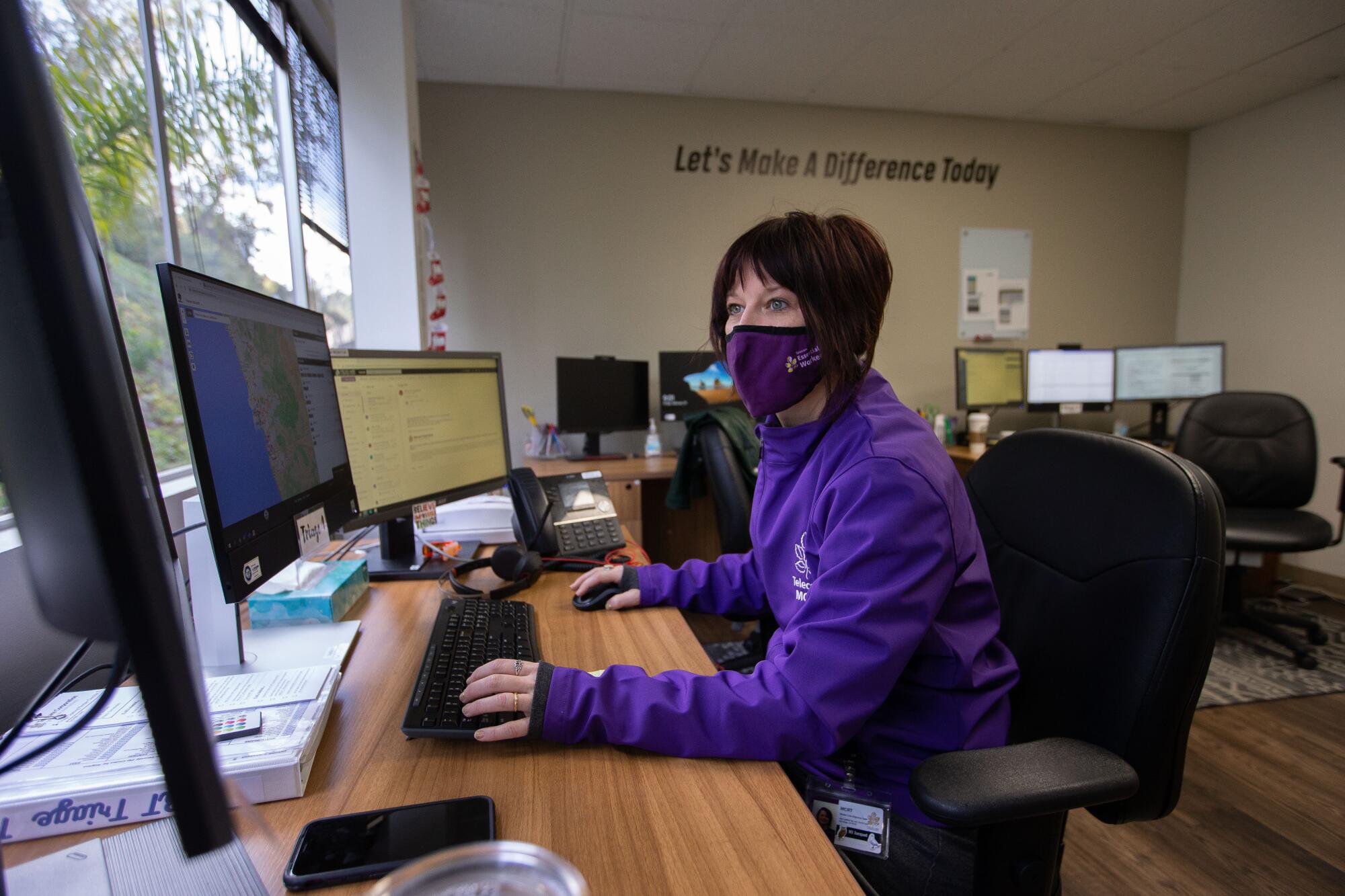
No guns, no badges, no sirens. The county’s Mobile Crisis Response Teams change how people in crisis receive mental health care.
- Share via
San Diego — A man in the throes of a panic attack called 911 from his Chula Vista apartment on a recent morning.
It’s the kind of call police officers would usually go to. Instead, the Chula Vista Police Department forwarded the call to Lauren Muecke, who works for the county’s Mobile Crisis Response Teams.
“We’re not going to be sending an ambulance, and we’re not going to be sending police officers,” Muecke told the man. “We’re happy to talk to you today and support you today. How does that sound to you?”
This story is for subscribers
We offer subscribers exclusive access to our best journalism.
Thank you for your support.
Less than 30 minutes later, Muecke and two other crisis responders, all in purple polo shirts, arrived at the man’s home in a siren-less minivan. After speaking with him, they determined immediate treatment wasn’t necessary and promised to return to check in on him.
It’s the type of interaction reformers have long called for — one that replaces armed officers with mental health clinicians.
Every year, police respond to tens of thousands of calls about people in mental crisis. Critics have long argued against law enforcement’s involvement in these types of situations, saying officers are more likely to escalate mental health emergencies than provide the kind of help that is needed.
In some situations, interactions between officers and the mentally ill can even turn fatal.
Mobile Crisis Response Teams are made up of behavioral health clinicians, case managers and peer support specialists from the county’s service providers Exodus Recovery Inc. and Telecare Corp.
County officials stressed that the teams weren’t designed to replace other services, such as Psychiatric Emergency Response Teams, which pair mental health clinicians with uniformed officers and deputies. And situations that involve crimes, violence or threats of violence and medical emergencies will still be handled by law enforcement.
Instead, the crisis teams are intended to be a complementary program that expands the county’s ability to respond to those in crisis. Police leaders say it’s unclear how many mental health calls will be suitable for the new teams, but county officials expect their use to continue to grow as knowledge of the program spreads.
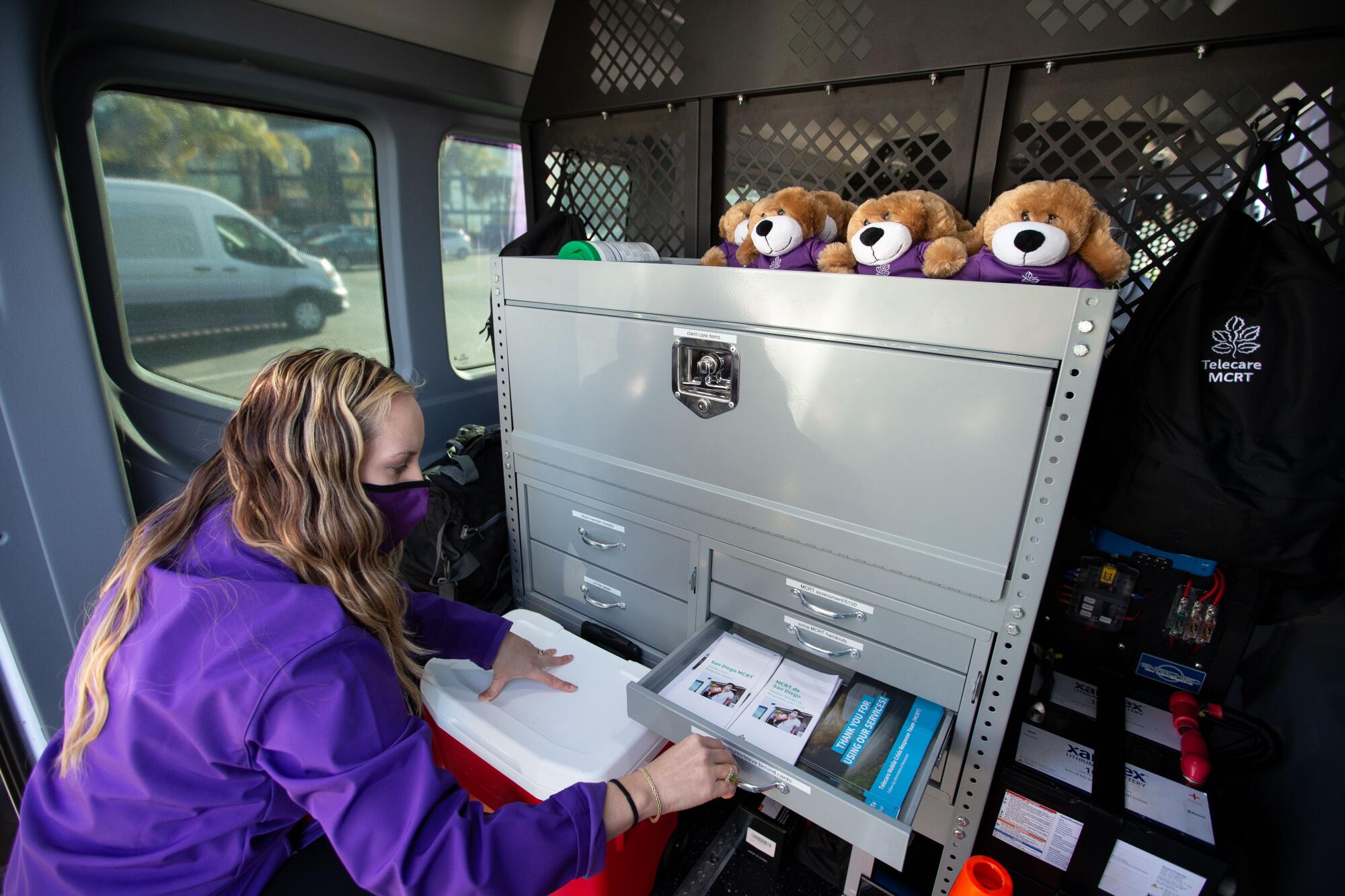
The addition of the crisis teams is just one prong of the county’s multifaceted effort to overhaul the region’s broken mental health system.
Too often, people struggling with mental illness find themselves cycling in and out of emergency rooms or jail cells, neither of which is well-equipped to treat and support people in a mental health crisis, officials say.
Many of the county’s recent mental health initiatives, like the creation of crisis stabilization centers and the mobile crisis teams, are part of the county’s effort to move away from a system that is primarily focused on helping people experiencing a mental health crisis.
And while mobile crisis teams do respond to emergencies, they also connect people with mental health resources and follow up with those they assist to ensure they get any additional care they might need — steps that would be difficult for police officers who are charged with responding to many other emergencies.
The goal is to transform how people in crisis receive care so they are less likely to experience a mental health emergency in the future, said county Supervisor Nathan Fletcher.
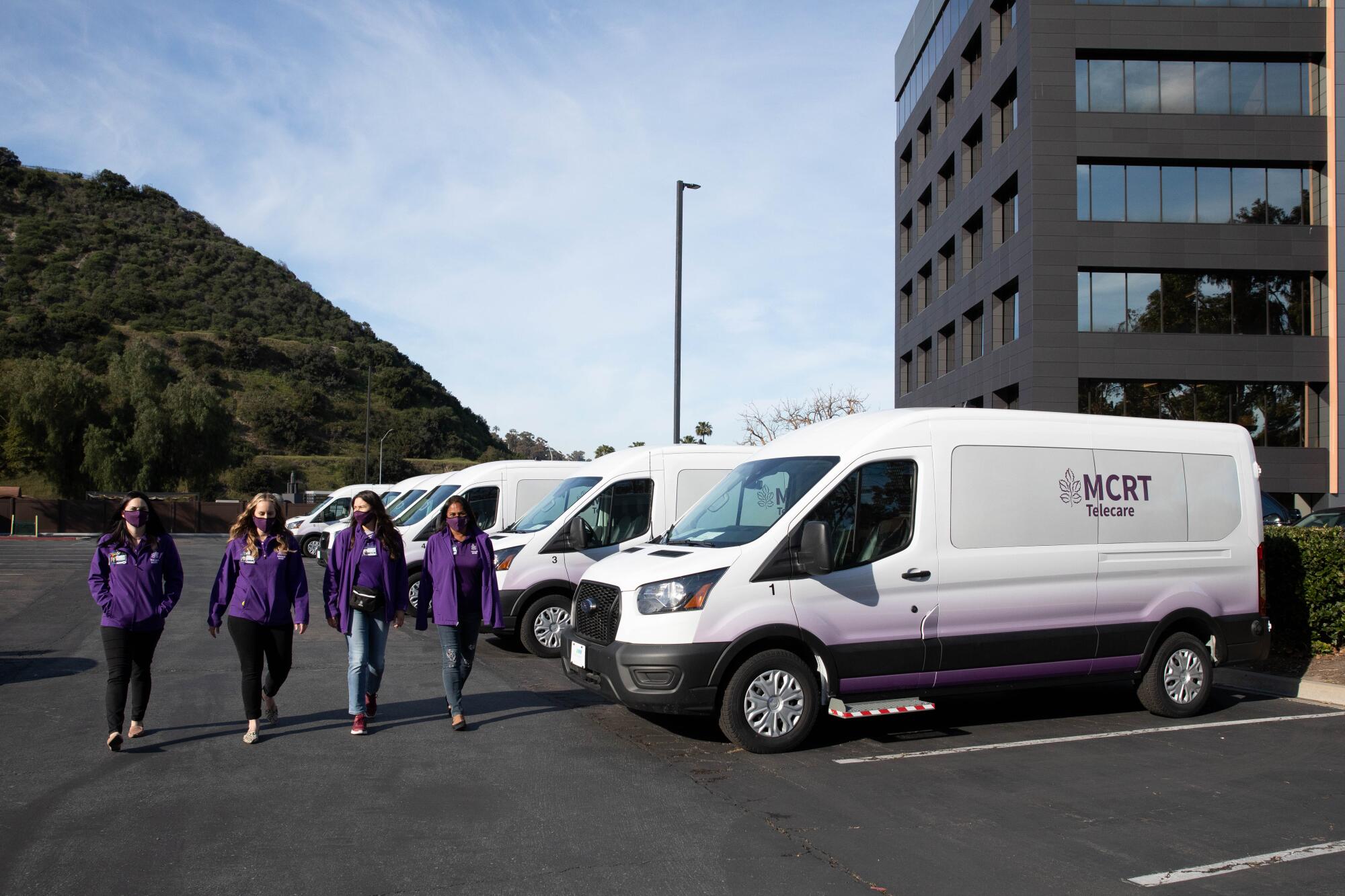
“Mobile Crisis Response Teams are not just changing your entry point into a system of health, but it is designed to change your trajectory moving forward,” Fletcher said. “Over time, we want to reduce the number of people who get to a state of crisis, and the way you do that is by engaging people in community care and other services.”
The groundwork for the teams was laid in 2019, when the county Board of Supervisors approved several mental health-related funding initiatives, but Fletcher said it was the spirit of reform that followed the death of George Floyd that helped get the program off the ground.
Floyd died after a former Minneapolis police officer knelt on his neck for nearly nine minutes. His death sparked protests across the country and reinvigorated calls for police reforms, including several surrounding mental health emergencies.
“It really was in the aftermath of George Floyd and the cries for racial justice and the cries to reimagine what law enforcement does,” Fletcher said. “That was the environment that allowed us to … get this up and running.”
The first Mobile Crisis Response Teams went to work in January 2021 as part of a $10-million pilot program in the North Coastal region. In June, the teams expanded to the South Bay. They were available countywide by December. There are now 16 teams. While staffing shortages have affected some areas of the county’s behavioral health system, expansion of the MCRT program has not been hampered. One factor is that the county relies on two outside entities, Telecare and Exodus, to provide the services, county officials said.
Since their creation, the crisis teams have handled more than 500 calls. They have assisted people struggling with anxiety, depression and those contemplating suicide. They’ve also helped homeless individuals and others struggling with substance abuse. To date, the oldest person they’ve served was 91 years old and the youngest was 7.
About 20% of people who’ve been helped by the teams were transported to crisis stabilization units, which treat those experiencing mental health emergencies. Nearly 15% of incidents involved people who were homeless.
The vast majority of calls — 97% — did not require additional assistance from police.
Several police leaders who are already working in tandem with the teams have welcomed the new program and the service they provide.
The National City Police Department was one of the first agencies to partner with the county program. Jose Tellez, the department’s chief, said the number of mental health crisis calls his officers handle has steadily risen in recent years. In 2020, the department saw about 1,200 mental health calls — and that only includes the situations that were identified as mental health emergencies at the outset.
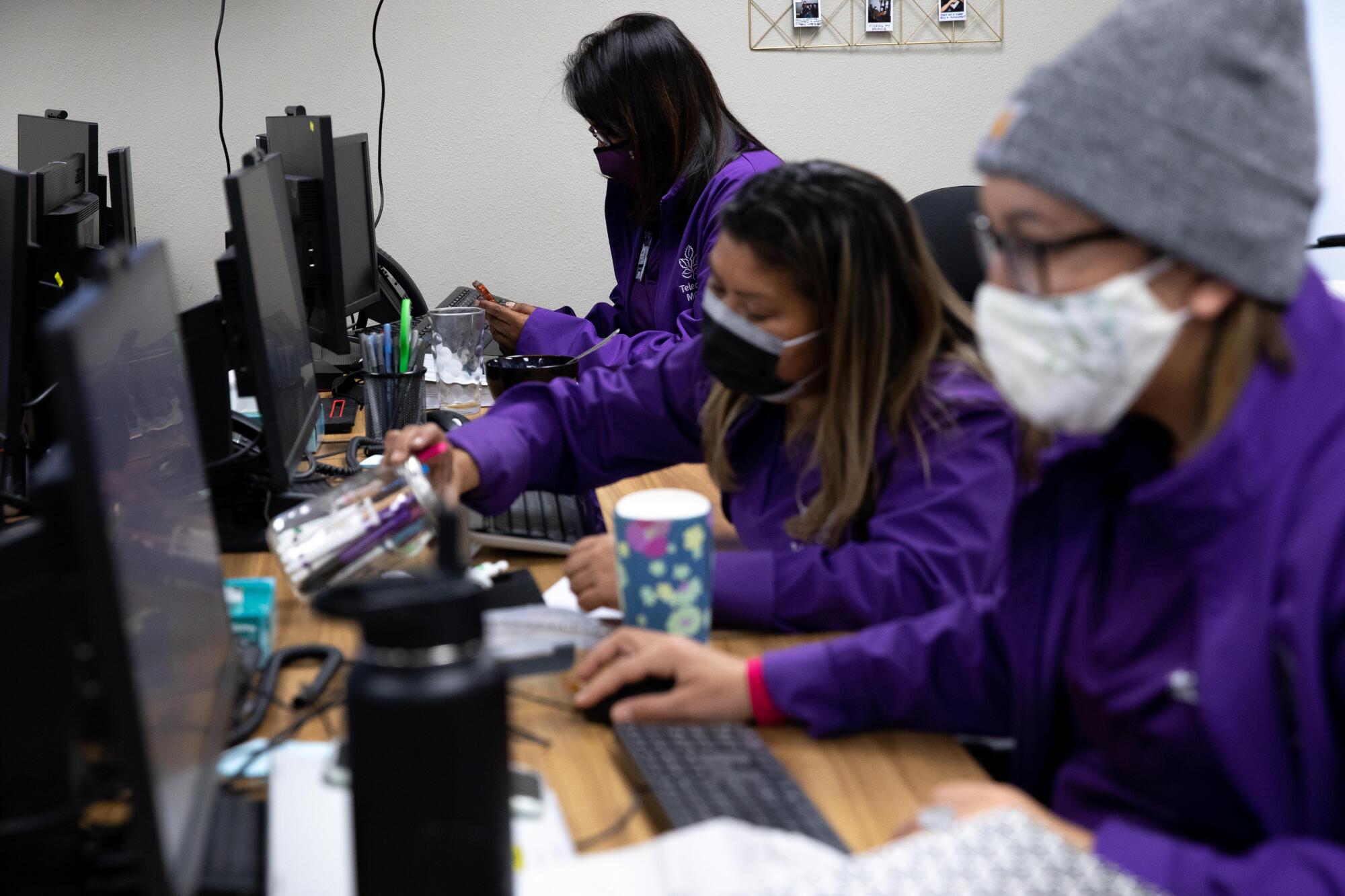
Officers may respond to some other kind of call, like noise complaints or a disturbance, only to discover upon arrival that someone is experiencing a mental health crisis.
“So those 1,200 calls for service are really just a snapshot of the entire picture that officers are dealing with out here on a daily basis,” Tellez said.
Sorting out crisis calls can be extremely time-consuming for officers. It can take several hours to get an individual evaluated at a mental health facility or a hospital — hours that could have been spent investigating or deterring crime, Tellez said.
And while officers receive some mental crisis training, it’s not their area of expertise. Tellez said many of his officers would be glad to step aside and allow mental health professionals to work with people in crisis.
He knows it’s the kind of program his community would support as well.
“The majority of these calls are not criminal in nature. They’re better suited for a medical or behavioral specialist,” Tellez said. “That’s what our community and our elected officials want. They want mental health professionals, behavioral specialists, to handle the majority of this.”
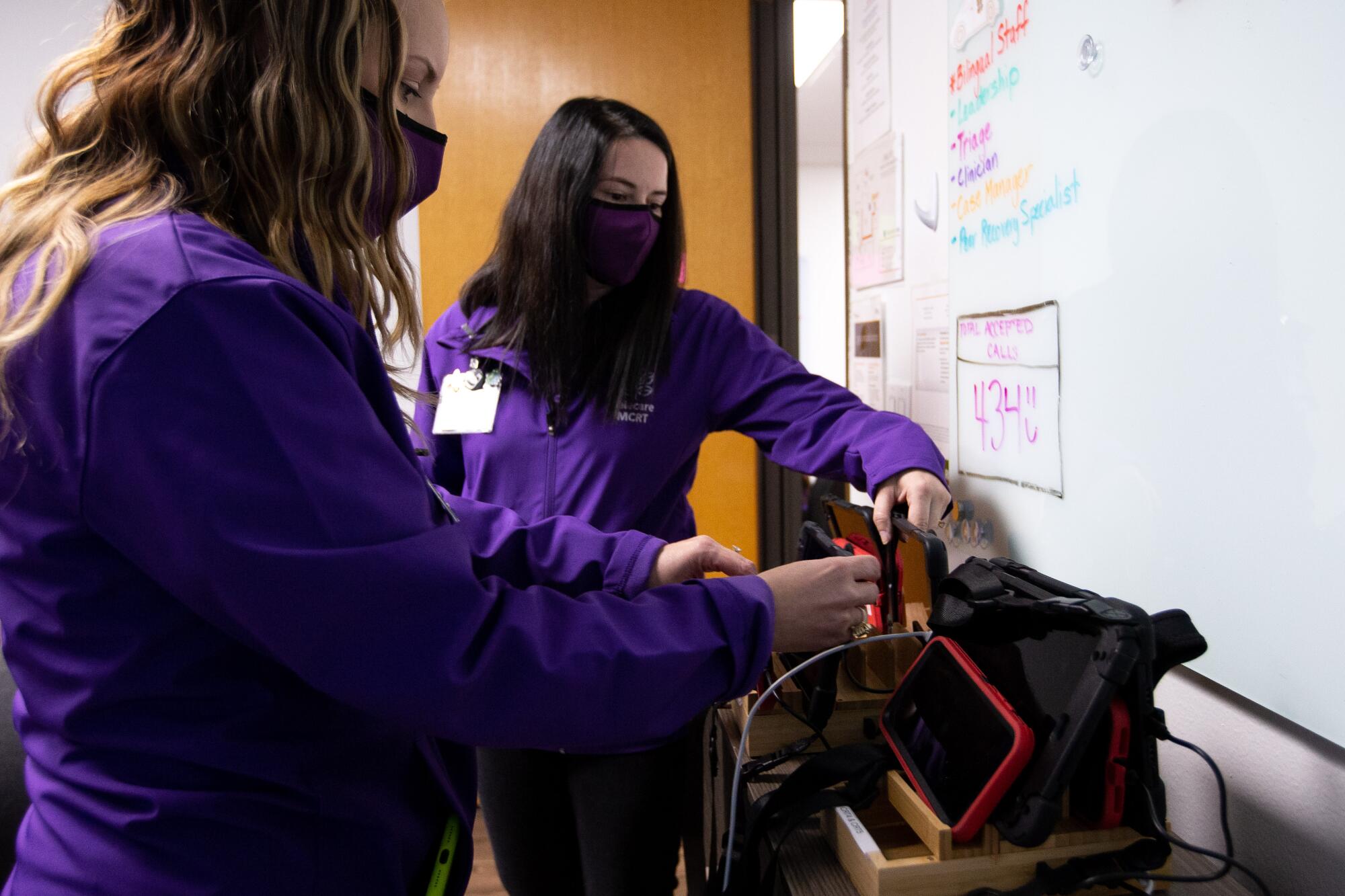
Tellez knows that the presence of officers can sometimes escalate mental health emergencies. He said department policy often calls for those who are mentally ill to be placed in handcuffs or in the back of a police car. It’s not uncommon for officers to use force during crisis calls, Tellez said.
Even Psychiatric Emergency Response Teams, which pair mental health clinicians with uniformed officers and deputies, can be met with resistance because of law enforcement’s involvement, the chief said.
Some families know first-hand how volatile police encounters with mentally ill people can be.
The night Dennis Carolino’s aunt called 911, she knew he needed help.
Carolino had long struggled with his mental health, and family members said it was sometimes difficult to get him the help he needed. On Aug. 24, 2019, Carolino got upset and threw a stepping stone at his aunt.

When she called the police, she told them she was concerned he had stopped taking his medication and specifically asked that he be mentally evaluated, not taken to jail.
Officers were led to a shed in the backyard where Carolino lived. The door of the shed suddenly opened, and Carolino emerged holding a large shovel. As he moved quickly toward the officers, one of them fired a Taser. The other fatally shot Carolino.
Antonio Carolino, Dennis’ brother, said in an interview that his brother was likely scared when officers arrived — scared that he was going to be taken away from where he felt safe.
He feels confident that if mental health professionals had shown up to help that day instead of police officers, his brother would still be alive.
“The situation would have been totally different,” Antonio Carolino said. “The people who know about mental health, people who are trained to handle mental problems, they’re going to approach him totally differently.”
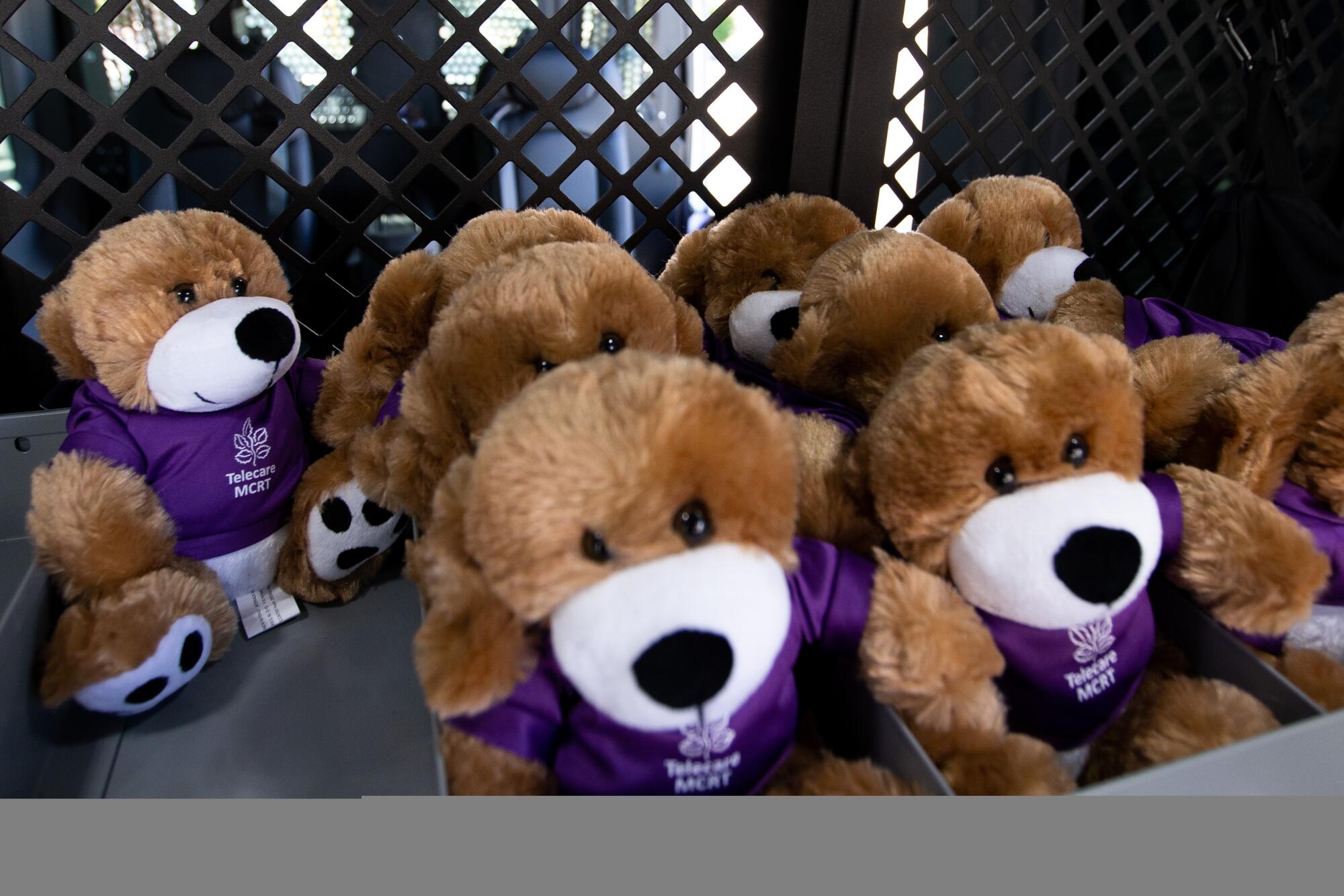
Carolino is not the only San Diego County resident whose battle with mental illness ended with a police shooting. According to the district attorney’s office, about 15% of people shot by police from 1993 through 2017 had some sort of documented mental health issue.
Currently, people can reach Mobile Crisis Response Teams through the county’s 24-hour Access and Crisis Line at (888) 724-7240. County Supervisor Nora Vargas said the county is working to create a diverse MCRT workforce that is culturally competent and can speak different languages to genuinely connect and understand those they serve. The program also offers immediate interpreter services to help via the crisis line or while in the field.
Law enforcement agencies can get in touch with the teams as well, should officers respond to a mental health emergency that they aren’t needed at. Residents in Chula Vista and National City can also get connected to MCRTs by calling 911, a feature officials are working to implement countywide.
County officials said they have worked closely with law enforcement to create specific criteria that dispatchers will use to determine whether a person should be referred to MCRT, police or some other available service. There is also a weekly workgroup that discusses the calls that have been referred to crisis response teams to ensure the right situations are being sent over. Police dispatchers are also able to consult MCRT in real time to determine whether an incident is a good fit.
Chula Vista police Capt. Phil Collum, who has helped integrate the mobile crisis teams in Chula Vista, said the department is still sorting out which calls are best for the new team.
“That’s why we crawl first,” Collum said. “It’s so we can learn. It’s so we can grow the program in a way that is successful and helps our community and we can try to iron out some of the wrinkles as the program expands.”
The county is looking to continue the program with a budget of about $12 million annually, an expense that may increase as services expand, a county spokeswoman said.
More to Read
Sign up for Essential California
The most important California stories and recommendations in your inbox every morning.
You may occasionally receive promotional content from the Los Angeles Times.












